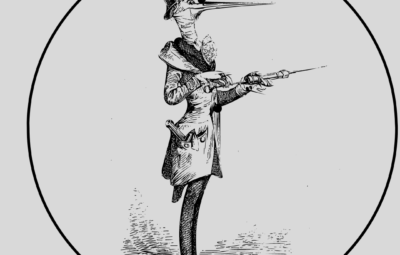“Reputation” and “Lover”, Taylor’s sixth and seventh studio albums respectively, seem to have this crazy amount of contrast between one another on the surface.
“Reputation” alone features a bold black and white album cover that is harshly defined and works to portray the edgier, electric and even punk sound of the album; something that Swift had never done before. In contrast, “Lover” is a much brighter and happier album with vibrant pastel tones one could describe as a unicorn or mermaid palette. We see this softness reflected in the album’s sound, which is much more traditionally Taylor, taking to a light-hearted pop sound.
Based on literally judging by the covers and first impressions, a person could see these albums as completely different and even wonder how they came from the same person. While there are definitely differences in the major sounds of both albums, “Reputation” shares more with “Lover” than one may realize.
Beginning with “Reputation,” this album comes after Taylor seemingly disappeared out of the public eye shortly after releasing her fifth album, “1989.” After receiving so much critique and speculation from the media about her personal life and relationships with other celebrities, she went into seclusion and wrote about this, eventually giving us “Reputation”.
While “Reputation” definitely is centered around her response to the media and the falling of her reputation, it also gives us a picture of her loving relationship during this time.
Although “Reputation” certainly has its fair share of edgy tracks, there are quite a few tracks that are love ballads akin to those on “Lover.” Songs such as “Delicate”, “Gorgeous”, “King of My Heart”, “Dress”, “Call It What You Want”, and “New Year’s Day” are all perfect examples of this.
“Delicate” and “Call It What You Want” shows Swift’s vulnerability in her relationship and how she navigates loving someone else in the midst of her reputation being on the rocks.
In “Delicate”, Swift says “my reputation’s never been worse/ so you must like me for me.” She questions her lover on if what she is saying and doing in the relationship are okay, calling the whole situation “delicate.” Presumably feeling like she has to walk on eggshells due to her publicity: “Is it cool that I said all that?/Is it chill that you’re in my head?/Cause, I know that it’s delicate.”
“Call It What You Want” seems to be Taylor’s response to the press. The response quite literally being to call it what you want. She knows where her relationship stands and talks about that, saying that “[her] baby’s fly like a jet stream/ high above the whole scene/ loves [her] like [she’s] brand new.” No matter what picture the press tries to paint, she finds security and confidence in her relationship.
We see the strong feelings she has towards her lover in the songs “Gorgeous” and “King of My Heart” where she’s both commenting on his attractiveness in the former, and his authority in her life in the latter.
“Dress” and “New Year’s Day” seem to display the stages of the relationship in which she’s yearning for him.
The whole premise of “Dress” is her buying a dress only for her lover to take it off and basically insinuating her desire to be more than friends by saying rather blatantly, “carve your name into my bedpost/ cause I don’t want you like a best friend now.” While “New Year’s Day” shows a scenario in which they’re cleaning up after a party and Taylor sings about her loyalty to this person that would lead her to be willing to “clean up bottles with [him] on New Year’s Day.”
This is surprisingly soft and lovey-dovey for such a seemingly edgy album.
In regards to “Lover,” this album followed the “Reputation” era and saw Taylor returning to her more traditional light-hearted pop scene. With a title like “Lover,” who wouldn’t expect some love songs? “Lover” does share the same theme in discussing insecurities and vulnerabilities in relationships as “Reputation”.
In the song “The Archer,” Taylor says to her lover, “who could ever leave me, darling, but who could ever stay?” Then, in “Afterglow,” Swift details how she often destroys her relationships through self-sabotage. She talks about how “it’s all [her]/ in [her] head/ [She’s] the one who burned [them] down.”
However, despite the large amount of love songs, “Lover” also contains some not-so-love songs!
In fact, the first song of the album, “I Forgot That You Existed” works to bring a close to “Reputation” and open “Lover” by shrugging off the press and the haters with the simple phrase, “I forgot that you existed.”
Then, we see the song “The Man” which delves into the deep rooted patriarchal ideas present in our society and Taylor gives many examples of how men can get away with a lot that women cannot. She says, “if I was a man, I’d be THE man.”
These ideas surprisingly line up with “Reputation,” where Swift takes on a sort of “girl-boss” persona, if you will. In her song “Ready For It,” Taylor talks about guys as her play-things and says that “if a man talks [bad]/ [she] owes him nothing.” She quite literally flips the script on the traditional men-first point of view society has historically set, and that is what she aims to point out on “Lover.”
Swift has other non-love songs like “Soon You’ll Get Better” & “You Need To Calm Down” which don’t directly relate to “Reputation,” but they certainly fit the idea of being outside Taylor’s typical subject of writing like “Reputation” does.
In looking further at both of these wonderful albums, there are many more parallels to be had than perhaps first realized. A quote from Swift’s poem “Why She Disappeared” wraps a bow up on this perfectly: “And in the death of her reputation, she truly felt alive.”






